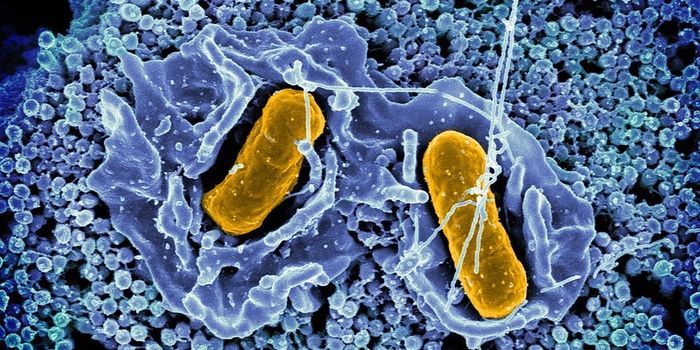Antibiotic Overuse ID'ed as Culprit in UK Superbug Outbreak
A study published in the journal Lancet Infectious Diseases has demonstrated that a diarrhea outbreak caused by the Clostridium difficile bacterium that occurred in British hospitals around 2006 was caused by the overuse of antibiotics. The following video presents a brief summary of the findings in the work.
Antibiotic overuse is recognized as a major contributor to the rise of pathogenic bacteria that do not respond to antibiotic drug therapies when they infect people. Such pathogens, termed superbugs, are attracting attention as a major threat to public health. Reducing the use of a class of drugs called fluoroquinolones, which includes antibiotics ciprofloxacin (Cipro) and levofloxacin (Levaquin), stopped the outbreak.
"These findings are of international importance because other regions, such as North America, where fluoroquinolone prescribing remains unrestricted, still suffer from epidemic numbers of C. difficile infections," said one author of the work, Derrick Crook, a Professor of Microbiology at the University of Oxford in England.
The investigators explained that C. difficile that was resistant to antibiotics thrived in an environment where too much fluoroqiunolone was present; microbes in the gut that were not able to withstand the drug were killed and the C. difficile microbe population exploded.
"Emergency measures -- such as 'deep cleaning' and careful antibiotic prescribing -- were introduced [after the outbreak began] and numbers of C. difficile infections gradually fell by 80 percent, but no one was sure precisely why," explained Crook.
"Our study shows that the C. difficile epidemic was an unintended consequence of intensive use of an antibiotic class, fluoroquinolones, and control was achieved by specifically reducing use of this antibiotic class, because only the C. difficile bugs that were resistant to fluoroquinolones went away," he added.
The was no change in the relatively few number of cases of diarrhea resulting from C. difficile microbes that weren’t fluoroquinolone antibiotic-resistant.
"Reducing the type of antibiotics like ciprofloxacin was, therefore, the best way of stopping this national epidemic of C. difficile, and routine, expensive deep cleaning was unnecessary," Crook said. "However, it is important that good hand hygiene continues to be practiced to control the spread of other infections," he added.
In September 2016, the World Health Organization declared that antibiotic resistance was “one of the biggest threats to global health and endangers other major priorities, such as human development.” They highlighted the need for the development of new drugs to fill the void being left by drugs that are no longer especially helpful in fighting illness. The United Nations also sees this problem as a major priority, discussing it in September. That was only the fourth time a topic relevant to health matters became a focus of the General Assembly.
Bacteria gain resistance to antibiotics from genes, many of which can be easily passed between microbes. Learn more about it in the above video.
Source: UPI, The Lancet, WHO








